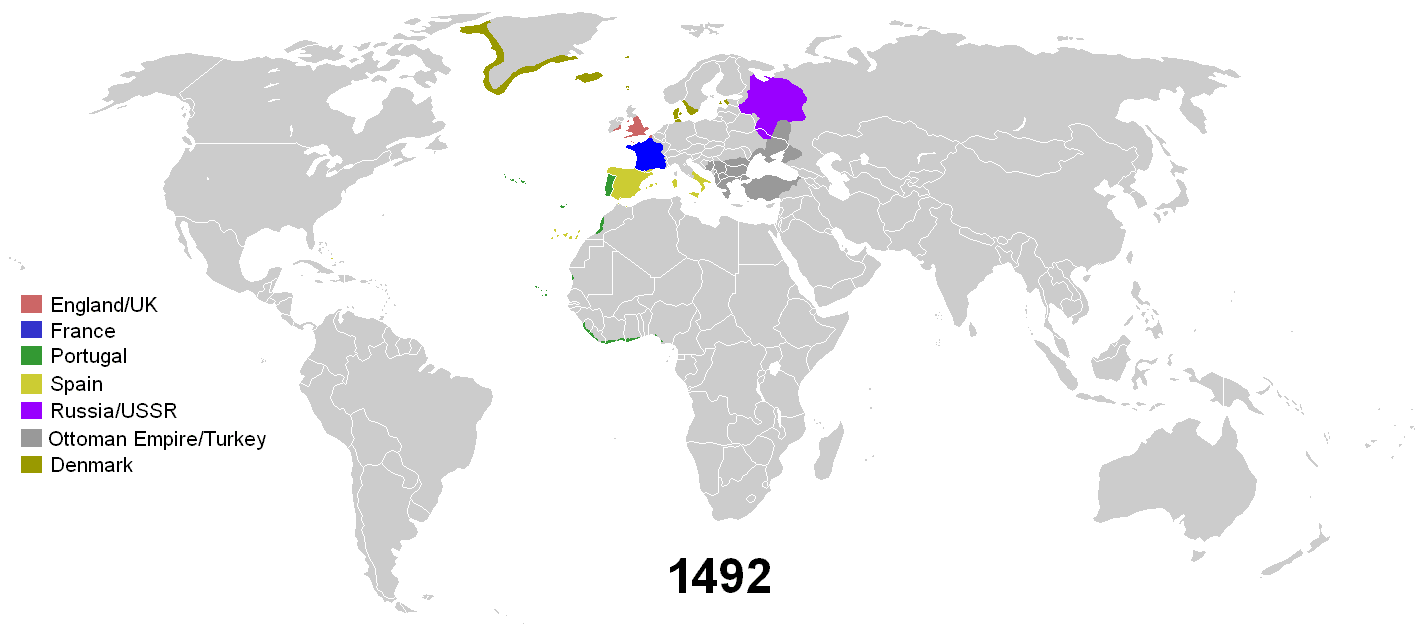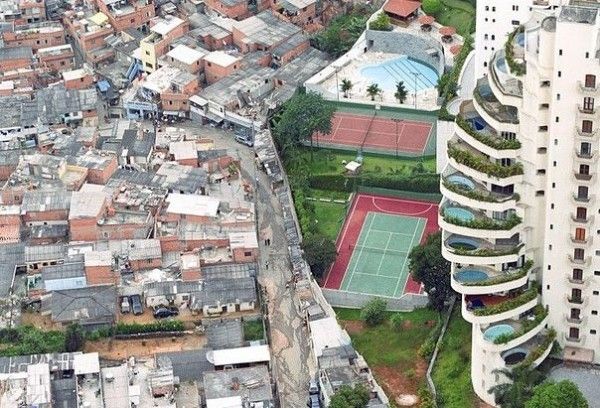PART IV
In this section of our course, I address the dilemma of building viable Nation-states in the Post-Colonial World.
Up to now, we have discussed nation-state identities–liberalism and Leninism–that are fairly easy to pin down. But, what does one do with the rest of the world? Americans frequently lob all of the countries (and problematic countries) into a category called the “Third World.” Perhaps this simplistic depiction of other peoples is due to the fact that Americans travel so much less than than, say, our European counterparts? The problem with a grab-all concept like “Third World” is that it obscures the many, many different civilizations that do not lend themselves to easy generalization. After all, it doesn’t make sense–and it simply won’t work–to put countries like Chile and Argentina in the same box as Sudan and Afghanistan.
My solution to this challenge is to narrow our focus by concentrating on a specific category of states that have one thing in common: the experience of European colonization This approach has a notable benefit. Many of the major crises in the world today are at least partly due to the experience of European colonialism. These countries include Afghanistan, one of the great tragedies of our day.
As always, I am continuing my story about the elusive form of political identity known as the nation-state. Now, we will look at states that, in many cases, aren’t nation-states at all. Many of them are not even states; they are, like Afghanistan, failed states.
27. LECTURE: Monday, November 1
Initial reflections on the contradictions between two ideal types: tradition and modernity.
Today’s Assumption: People in the West frequently denigrate the cultures of the inhabitants of traditional societies. Yet, the norms and institutions of traditional society are as rational as those of modern society.
A good example of liberal democracy’s problem with the expression of traditional ways of acting is the French practice of Laicité
Angelique Chrisafis, “France’s Headscarf Rule,” The Guardian,” July 2013 READ
Part of our tendency to denigrate other peoples and cultures is due to our hubristic conception of our place in history. Remember Weber’s point about how our Protestant predecessors regarded themseles as saved by God. To cite one example of our hubris, we repeatedly hear that so-called Third World countries are invariably corrupt. Yet despite the western assumption that liberal capitalist societies are governed solely by impersonal rules of order, traditional practices, like political corruption, play an undeniable part in liberal-democratic societies, too. See here:
See Glen Thrush, “If I’m corrupt, it’s because I take care of my district” READ (Until his death in 2010, John Murtha, the subject of this article, had been the longest serving representative in the House of Representatives. Most likely, this was the result of taking care of a lot of people! But taking care of whom in particular? Ah…).
Please watch the wonderful film, “Mister Johnson” by Wednesday. See our on-line Hesburgh Reserves site HERE
28. LECTURE: Wednesday, November 3
Reflections on the brutal and paradoxical consequences of colonial empires.

Today’s Assumption: In this lecture, I will focus on colonialism’s role as an external instrument of change. Whether we are talking about the realization of Napoleon’s imperial ambitions in Europe or Europe’s colonial conquests of most of Africa and Asia one century later, the intrusion of these powers repeatedly challenged the stability and integrity of other peoples and cultures. Well after these powers left, as we shall see in the coming weeks, their continued to be felt for decades and even centuries thereafter. The tragedy of Afghanistan, which I shall discuss today, is a tragedy of colonization and of repeatedly attempted but consistently failed exercises in foreign domination.
Please read these articles to get a sense for the roots of the tragedy of Afghanistan:
Stephen Tanner, “Indomitable Afghanistan: Why the country remains unconquered” READ
Carter Malkesian,”What America didn’t understand about its longest war,” Politico, July 6, 2021 READ
29. NO DISCUSSION SECTION: Friday, November 5
You have been writing your papers
30. LECTURE: Monday, November 8
Reflections on the sensible logic of peasant society.
Today’s Assumption: There are more peasants in the world than any other social group. The organization of peasant societies makes more sense than we might imagine. It relies upon a conception of reality known as the “limited good.” The “limited good” is neither good nor bad. It is simple one way of looking at the world.
Assignment: Read George Foster’s seminal article and the newspaper piece below and ask yourself what the advantages and disadvantages of peasant society would be. Do you agree with all of Foster’s claims?
George Foster: “Peasant society and the image of the limited good” PRINT AND READ
Sara Sidner, “Brothers share wife to secure family land” READ
On the rational logic behind primogeniture: READ
Then, read about the massive migration of peasants from the land into the cities, a quintessential example of the conflict between traditional and modern societies.
Eugene Linden, “The exploding cities of the developing world,” Jan-Feb;75(1), 1996: 52-65. Search through JSTOR and PRINT and READ
US citizens immigrate too!
And why not immigrate permanently to South Bend? You could bring desperately needed labor resources to our region. And, it will certainly help my home value.
D’Vera Cohn, “About a fifth of U.S. adults moved due to COVID-19 or know someone who did,” Pew Research Center, July 6, 2020 READ
31. LECTURE: Wednesday, November 10
Reflections on a global problem—poverty—and its implications for life, society, and politics.

Today’s Assumption: Being poor is a way of life for most people in the world. No student at the University of Notre Dame should be indifferent to the plight of the poor, especially while living on one of the most conspicuously affluent campuses in the world! In addition, poverty is not only a problem for other peoples. It is a problem for Americans as well because it is deeply embedded in our society, indeed arguably to a much greater extent than in any other modern industrial democracy.
Assignment:
For today’s class, please read the first half of Carolina Maria de Jesus, Child of the Dark. De Jesus’s story is painfully revealing. As you read it, try to imagine what you would do if you found yourself in her shoes. Keep in mind that Carolina Maria was a living, breathing human being, just like you; she had nothing–often not even food in her stomach–and she somehow managed to write this incredible diary.
Carolina Maria de Jesus, Child of the Dark.
Ana Swanson, “You might be among the richest people in the world and not realize it” Washington Post READ
Gapminder: Look HERE for some of some very cool sources of information. Gapminder is like an interactive game designed to take you through every imaginable data (e.g., live births, literacy rates, income) relevant to comparisons between the developed and developing world. For some of the topics, you can even manipulate the information over time, going back hundreds of years. I could play around with this device all evening.
Jesse McKinley, “Cities deal with a surge in shanty towns” READ
32. DISCUSSION SECTION: Friday, November 12
She brought forth her firstborn son, and she wrapped him in bands of cloth, and laid him in a feeding trough, because there was no room for them in the inn (World English Bible)
What does this passage entail?
Readings:
By today’s discussion section, you should have completed Child of the Dark
What message might Carlolina Maria de Jesus to convey to American citizens?
What is a Roman Catholic’s responsibility to the poor? Leondardo Boff, a key proponent of “liberation theology,” comments: PRINT AND READ
On the poverty of voluntourism READ
The inequality of opportunity in America: WATCH I particularly like the reference to John 3: 17-18.
Can Notre Dame be a truly Catholic institution and not practice liberation theology? What would it mean to practice liberation theology. Interestingly, the preeminent figure in liberation theology, Gustavo Gutiérrez, teaches at Notre Dame! See HERE
Paragraph assignment:
“Can Notre Dame be a truly Catholic institution and not practice liberation theology?”
32. LECTURE: Monday, November 15
Reflections on a popular form of authoritarian government: Big men with big guns, big appetites, and big mouths, thinking they can solve big problems.
Today’s Assumption: Western policymakers frequently rationalize life under dictatorial regimes (e.g., Saudi Arabia) as a political necessity. But cozying up to dictators is risky. Can we confidently say that we are the best judges of necessity, especially when we are talking about the quality of other people’s lives? We sometimes forget or ignore the fact–tragically–that ordinary people must live under these regimes.
Assignment: As you read about these regimes, ask yourself these questions: 1) Why would people support them? 2) How can the autocrats live with themselves after doing terrible things to stay in power? and 3) What should we do with them after they are no longer in power?
Patricia Sellers, “What exactly is charisma?” READ
Steve Kolowich, “Why Oprah Could be President” READ
Robert Kagan, “The Strongmen Strike Back, Washington Post, March 14, 2019 PRINT AND READ
